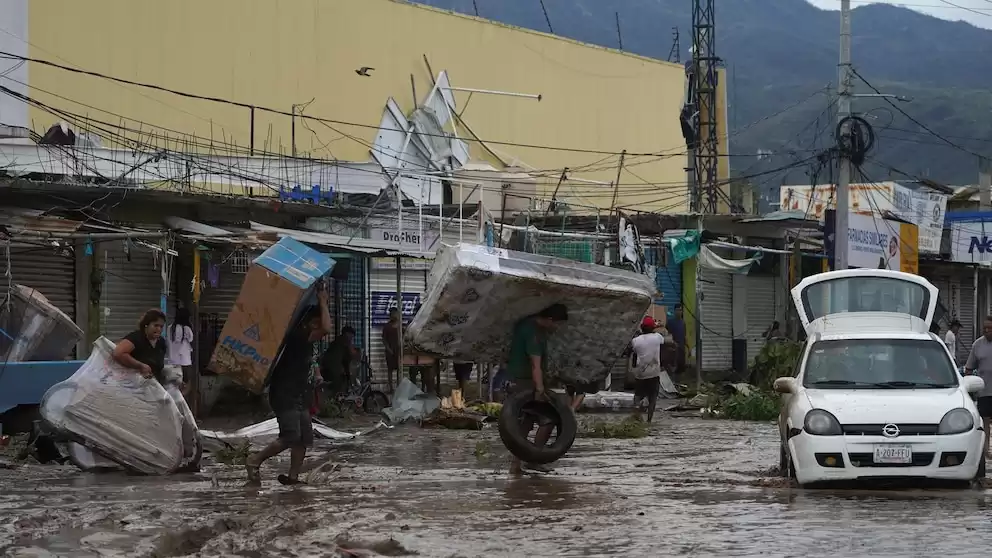Hurricane Otis survivors search for friends and necessities in devastated Acapulco
Survivors of Hurricane Otis in Acapulco, Mexico, are searching for loved ones and necessities as they await aid.
Acapulco, Mexico, was devastated by Hurricane Otis, a Category 5 storm that resulted in the deaths of at least 27 people. The storm hit with surprising speed, leaving the government scrambling to deal with the aftermath. Around 10,000 troops were deployed, but the equipment needed to clear the streets of mud and fallen trees was slow to arrive. This led to growing resentment in impoverished neighborhoods, as residents feared that the government would prioritize repairing infrastructure for tourism rather than helping those in need.
Flora Contreras Santos, a housewife from a poor neighborhood, desperately sought help in finding a 3-year-old girl who was swept away by a mudslide. Despite her pleas, the soldiers she approached did not take action. President Andrés Manuel López Obrador visited Acapulco after the hurricane and acknowledged that the storm had caused significant damage, including toppling power-line poles and leaving much of the city without electricity. Restoring power became a top priority.
The floodwaters extended for miles, leaving many residents without basic necessities. Some resorted to looting, taking both essential and non-essential items from stores. As cell phone signals gradually returned, residents used online messaging platforms like WhatsApp to organize themselves and seek information about their loved ones. One resident, Juan Pablo Lopez, created a chat group with friends and family to share information and support one another. However, he still had not received any news about his wife and newborn son.
The city was in chaos, with residents emptying stores of goods. Ricardo Díaz, a self-employed laborer, witnessed people taking advantage of the situation and felt that it would harm Acapulco in the long term. Edith Villanueva, who worked at a cell phone store, expressed concern about the future of the city and the abuse of looting. Some residents believed that it could take up to a year for Acapulco to fully recover due to the lack of power, gasoline, limited cell coverage, and the destruction of hotels.
Despite the challenges, marketing expert Antonio Esparza remained optimistic, believing that the disaster would force the government to pay attention to Acapulco's needs. Large stores that had been looted were not restocking their shelves, making it difficult to find goods. However, street vendors selling fresh produce thrived as residents sought out food.
The once-glamorous beachfront hotels in Acapulco now lay in ruins, with hundreds of blown-out windows. The government electricity company sent trucks to restore power, but the downed electricity lines were submerged in mud and water. The main highway connecting Acapulco to Chilpancingo and Mexico City was partially reopened after a day of clearing debris, allowing emergency vehicles and supplies to reach the city. The commercial and military airports were too damaged to resume flights, but plans were made to establish an air bridge for resource transportation.
Acapulco, known for its stunning ocean views, nightlife, and tourism, has faced challenges in recent years due to violence caused by organized crime. This has driven away many international tourists. The city now faces the daunting task of rebuilding and recovering from the devastating impact of Hurricane Otis.
[AP writer María Verza in Mexico City and Associated Press Science Writer Seth Borenstein in Washington contributed to this report.]
Follow AP's climate coverage at: [https://apnews.com/hub/climate-and-environment]











Comments on Hurricane Otis survivors search for friends and necessities in devastated Acapulco